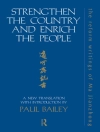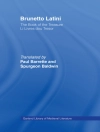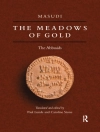Open a new portal into Shakespeare’s words—and his Renaissance life—with math and numbers as your key.
Shakespeare’s era was abuzz with mathematical progress, from the new concept of “zero” to Galileo’s redraft of the heavens. Now, Rob Eastaway uncovers the many surprising ways math shaped Shakespeare’s plays—and his world—touring astronomy, code-breaking, color theory, navigation, music, sports, and more.
- How reliable was a pocket sundial?
- Was math illusionist John Dee the real-life Prospero?
- How long was a Scottish mile, and what could you buy for a groat?
- Do Jupiter’s moons have a cameo in Cymbeline?
- How did ordinary people use numbers day to day?
- And might Shakespeare have tried that game-changing invention—the pencil?
Full of delights for devotees of both Tudor history and the Bard, Much Ado About Numbers is proof that the arts and sciences have always danced together.
Tabela de Conteúdo
Contents
Prologue
A Playfulness with Numbers
Huge Numbers
Much Ado About Nothing
Math at Grammar School
The Book of Arithmetic
The Seven Liberal Arts
Girls and Math
Anyone for Tennis? Or Football?
Hazard and Risk
Nine Men’s Morris
Noddy, Primero, and Other Card Games
Shakespearean Currency
Shakespeare the Accountant?
Borrowing, Lending, and Interest
An Era of Imprecise Measurements
Length and Distance
Telling the Time
Navigation and Maps
The Measure of Dance
Patterns of Verse
Rhyming Patterns
Music as a Mathematical Subject
The Music of the Spheres
Telescopes and Horoscopes
Ruled by the Seven Planets
The Science of Astronomy
The New Calendar
Rainbows in Shakespeare’s World
Shakespeare’s Colors
The Emerging Math of Color
Putting Ink to Paper
Writing with a Quill
Writing with Ink
Arrival of the Pencil
Printing and Publishing
John Dee, Mathematician and Magician
The Book of Magic
Think of a Number
Secret Messages and Chronograms
Acrostics and Other Hidden Words
Numerology and Codes
Shakespeare’s Calculator
Appendix: Mathematical Asides
Tactics for Winning at Three Men’s Morris
The Pythagorean Octave and Dorian Mode
Shakespeare, Orange, and Sir Isaac Newton
Philip Henslowe’s Diary
Francis Bacon’s Cipher System
A Shakespeare/Historic Event Timeline
Timeline of Shakespeare’s Plays and Poems
Bibliography
Acknowledgments
Picture Credits
Index
Sobre o autor
Rob Eastaway has authored and coauthored several bestselling books that connect math with everyday life, including Why Do Buses Come in Threes? and How Many Socks Make a Pair? He is the director of Maths Inspiration, an interactive lecture program that has reached over 250, 000 teenagers in England the last twenty years.












